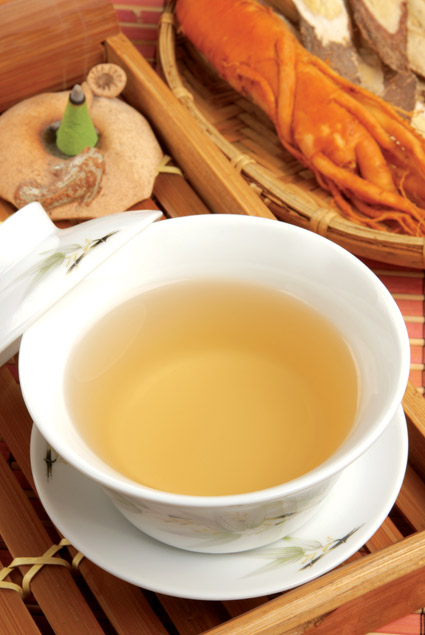
By Jonathan Evans
Herbal Information Specialist for the Herbarium
October is Breast Cancer Awareness Month, as most everyone knows. I have written several columns in the past outlining many supplements being used as complementary therapies for those battling breast cancer, such as Co-enzyme Q10, Turkey Tail mushrooms, IP-6, CBD oil and vitamin D to name a few.
I must say, allopathic - or traditional Western - medicine has come a long way over the years in recognizing the effectiveness of herbs and supplements. In researching this article, I decided to see if there was any new information, and surprise, surprise! Not only was there new information but as the old saying goes, “what’s old is new again.”
The National Center for Biotechnology Information, associated with the National Institutes of Health have a great report on “traditional” herbs used for cancer. Type ncbi.nlm.nih.gov into your browser, use the search function to locate herbs for cancer and you’ll find the entire article. You can also check out information at pubmed and medical news today. These are good websites to get accurate and up-to-date information.
Herbs to combat cancer
In a nutshell the ncbi listed several old-fashioned complementary treatments for breast cancer. Here is a short summary of the herbs it referenced:
Echinacea purpurea – This herb helps raise natural killer cells in the body. Echinacea (all species) have been known as an immune system modulator.
Garlic - Garlic has been known for centuries for its health benefits. Garlic helps to increase suppressor T-cells
This is just a short list of the herbs that become mainstream complementary therapies, and there is further evidence that vitamin D has very powerful anti cancer and immune enhancing properties.
The recommended amounts for vitamin D are somewhat higher than the government levels. 4000 ius seems to be the amount most suggested. Check out VitaminD council.org for more information.
Readers ask the Herbarium
This month we’ve also received some questions from readers with very common problems. Here’s our advice:
Dear Jonathan,
I have been diagnosed with rheumatoid arthritis and cannot tolerate the prescription. There also some gout involved. I hope there is something at the Herbarium that can help.
Alex
Dear Alex,
Yes, there are things that can help. Boswellia (Boswellia serata) is a relative of Frankincense (Boswellia sacra) and is used traditionally for a variety of inflammatory diseases, including rheumatoid arthritis, osteoarthritis and cervical spondylitis. White willow bark (Salix alba) is another traditional herb for rheumatism and gout. A nice effect of willow bark and its active ingredient, salicin, does not function as an anticoagulant and does not cause gastric problems.
We also have a gout tea that works very well. My Dad suffered with gout for many years, where he could take 40 aspirin a day like we would eat M&M’s. (How his stomach could take that kind of abuse is still a mystery to us) Once he discovered my wife’s tea, he was a new man.
— Jonathan
Dear Jonathan,
Our daughter is starting online studies for school and is having real anxiety, near panic attacks. I do not want to use the medication the doctor prescribed due to its side effects. What can we do to help her?
— Diane
Dear Diane,
I understand your situation. Believe me you are not alone. We are getting inundated with calls from parents with the return to school anxiety. We have an entire arsenal of supplements that can be used to combat anxiety. Here are some suggestions:
Kava kava (Piper methysticum) is a specific for anxiety. Other herbs for anxiety include Lemonbalm (Melissa officinalis), Passion flower (Passiflora incarnata), Hops (Humulus lupulus), and Valerian (Valeriana officinalis).
These herbs can be used individually or in formula. We have several formulas that have been shown to be effective, and a spray in the mouth that is amazing. There are also homeopathic formulas and essential oil blends that can help. One blend my wife made for herself is called “ Calm Heart”. She was a white-knuckle flier and created this blend many years ago. We use it in personal inhalers or diffusers.
You might want to bump up her vitamin B and C, as these are the stress vitamins. Magnesium has also been shown to be helpful.
Good luck to her.
— Jonathan
Send questions on botanical remedies to: Natures Rx: Jonathan Evans at herbarium258@gmail.com, or by regular mail to: The Herbarium, 264 Exchange Street, Chicopee, MA 01013. If requesting additional info, include a self-addressed stamped envelope.